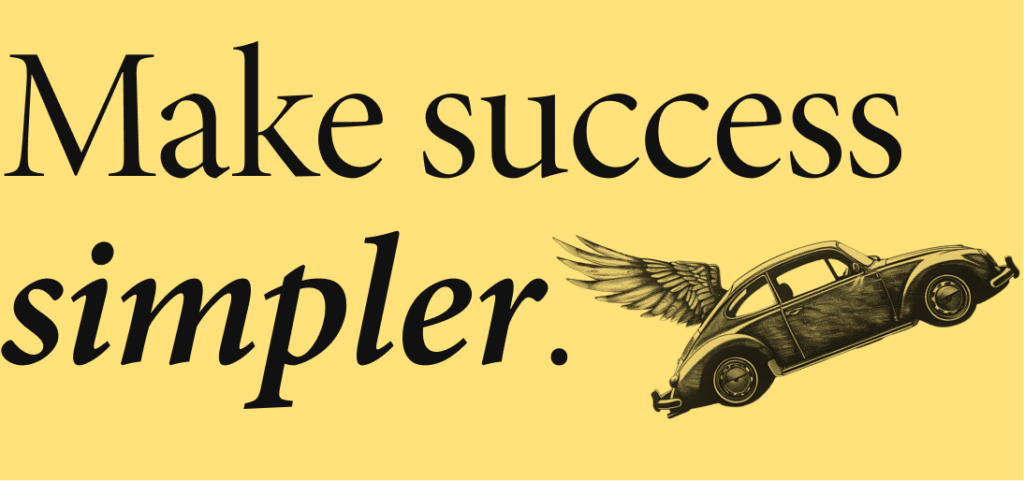Welcome to One Thing Better. Each week, the editor in chief of Entrepreneur magazine (that’s me) shares one way to level up — and build a career or company you love.
Today’s one thing: Envying what others have.
That one thing, better: Recognizing what they don’t.

You’re envious of someone.
Why? Pick the reason. They make more money than you. Accomplish more than you. Their career is bigger. Their title is cooler.
By comparison, you feel small.
You already know that comparison is the thief of joy. I don’t need to tell you that — and anyway, knowing it doesn’t help.
So today, I’ll give you something that will help — because it’ll put this problem in a new perspective.
And to start, I’ll share something a little embarrassing:
I feel envious of others too.
In an earlier part of my career, I wanted to be an editor in chief — and when I saw others further along that path, I felt jealous of their success.
Then I achieved my goal. Success! You’d think this would quench the envy, but envy is insatiable. As PJ Vogt said in a recent episode of his podcast Search Engine: “The desire to succeed can give you what you want, while at the same time removing your ability to enjoy it.”
I developed new goals — to build a “personal brand,” as they say, and all the opportunities that come with it. Then my envies shifted towards others who do it better.
I feel ugly and stupid even writing that. But it’s true.
And yet — here’s the thing I really want to share with you.
Because of my job, I also get to meet these people I’m envious of. I interview them. I become friends with them. I become friends with their friends.
And I have learned something very important…
There’s always more to the story.
When we’re envious of someone, all we see is their accomplishment.
But we don’t see what it took to get there. Or what was lost along the way.
So instead of asking ourselves: Why don’t I have that?
We should instead ask: What does it realistically take to get what they have? And do I want that?
Because the answer might be no.

This first clicked for me when interviewing the celebrity chef David Chang. His Momofuku restaurant group is a smash hit, he had a Netflix show, his cookbooks are best sellers — in short, he is the envy of many aspiring chefs.
He also has depression and anger management issues, which he says fueled him in ways he regrets.
“I was a really bad boss — yelling, screaming,” he told me when we spoke years ago. “And I’m looking back being like, Man, I got there, but were there other ways?”
I don’t cook, but I do love public speaking. I’ve built it into a healthy little business — doing one or two gigs a month, at fees I’m happy with. But I envy people who have more, of course. More gigs! More money!
And yet, when I speak to people who did it full-time, they tell me: It can be lonely. Physically draining. Marriages were destroyed. Important moments with children were missed. That made me think deeper about what I want, and what’s worth envying.
I’ve met other people whose careers I admired, and then learned about the difficult trade-offs that happened along the way. They did things I would not. They treated people in ways I would not.
To be clear, not all successful people are secretly unhappy. I’ve met many wonderful, joyful, generous, successful people.
But all success requires sacrifice, in some form. I once met someone famous for a drink — which was meticulously scheduled from 8:40 to 9 pm, because his night, like every night, was meticulously planned until the wee hours. This person was kind. He has many things I want.
I left thinking: I do not want his life.
So, what kind of life do you want?

If you want to tackle your envy, then stop thinking about the person you’re envious of — and start thinking about yourself.
And here’s how.
I just wrote above: All success requires sacrifice. But that sentence can be read in many ways.
Success is not one thing. We can define success for ourselves.
Sacrifice is also not one thing. It just means giving up one thing for the sake of another.
So, what is success for you? And what are you willing to sacrifice for it?
Here’s a nice way to start answering that question:
1. List the things you love, that you have.
What do you love about your life or yourself? Friends, family, kindness, integrity, time for yourself. Make a nice, long list.
2. List the things you wish you had, but you don’t.
These are the things you envy. More money, fame, a bigger career, a better whatever.
3. Pick what you’ll sacrifice.
The greatest sacrifices are the ones we choose. So, which is it? You can’t have everything from lists #1 and #2. If you want more money, for example, you might give up some family time. But conversely, if you want more family time, you might have to give up some money.
This is what it means to create an intentional life. We can’t have everything. But we can certainly have enough.
Here’s what I’ve found for myself:
This does not cure envy, but it gives me a way to process it. Whenever I see someone I’m envious of now, I think about what they’ve done to achieve their success. What did they sacrifice, that I would not? What choices did they make, where I’m choosing differently?
When you think this way, you create something good. Something yours. Something you value and control. Something that someone else is envious of — because no matter what you have, it is something that someone else wants.
That’s how to do one thing better.
